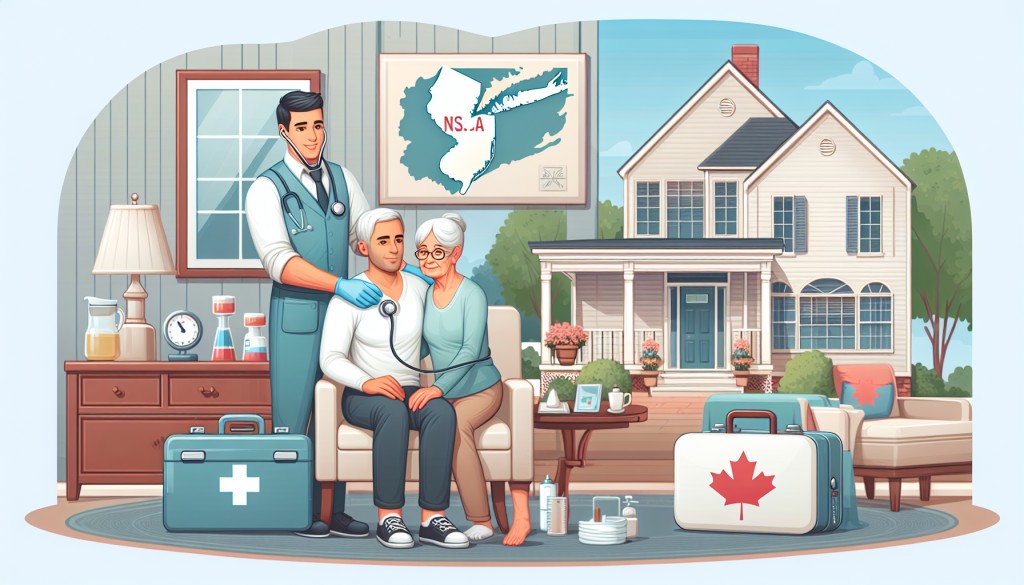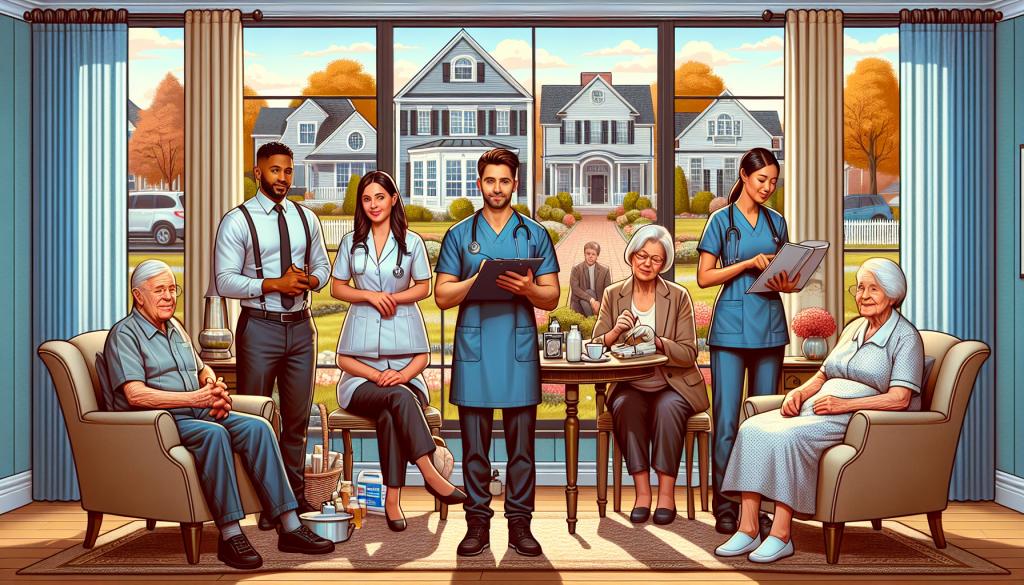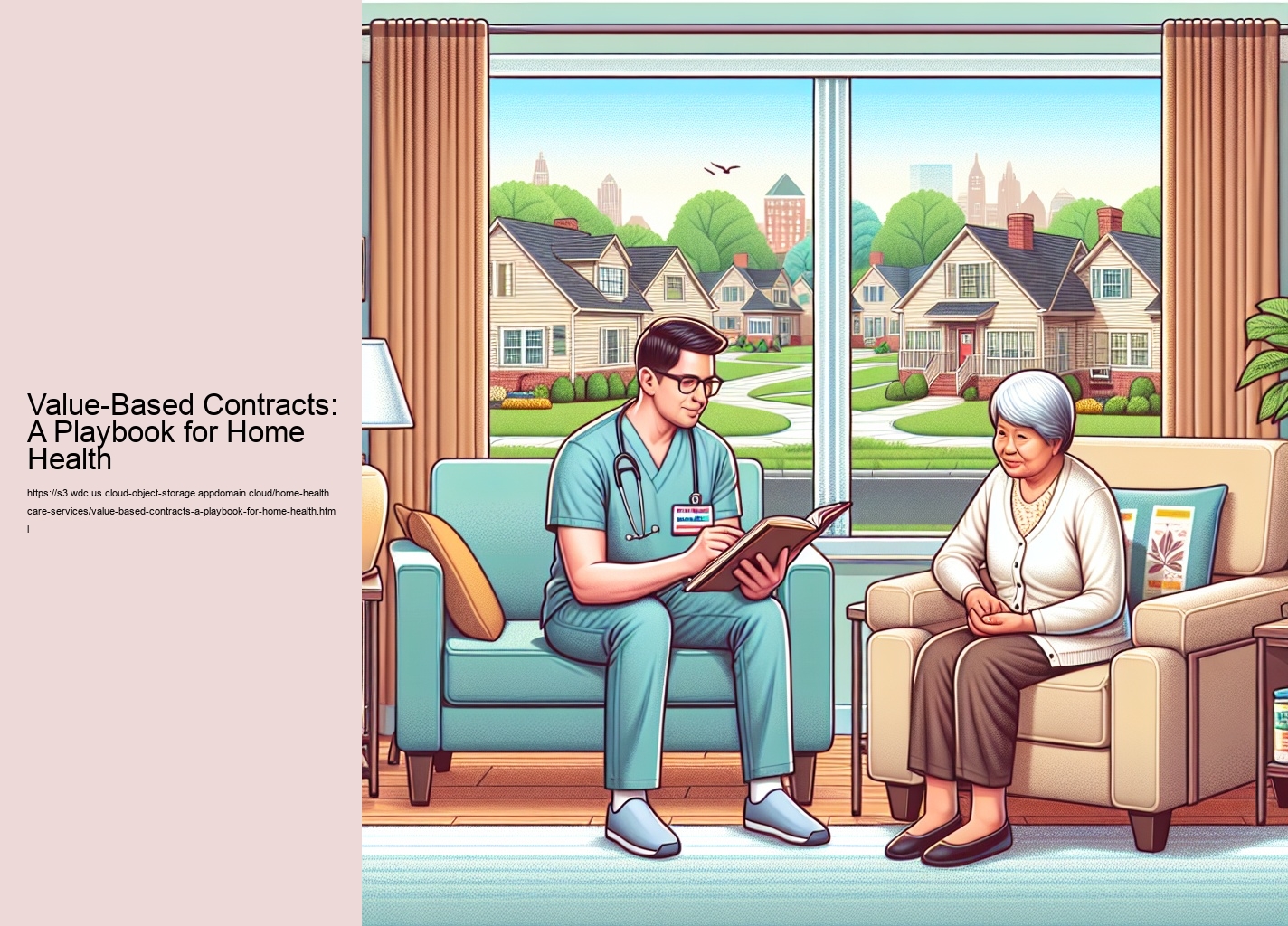Verify Licensing, Accreditation, and Top Quality Scores
Before you sign with any type of home healthcare provider in 2025, treat licensing, accreditation, and top quality rankings as non‑negotiables. HIPAA for Remote Home Monitoring: Expert Guide . Beginning with the essentials: verify the agency is appropriately certified in your state for the specific solutions you require. "Home health" (proficient nursing, therapy, injury treatment) is regulated in different ways from "home treatment" or "individual care" (bathing, dressing, friendship). Use your state health and wellness department or professional licensing board's online data source to confirm the agency license is energetic and in good standing, which it covers the appropriate service category. If the agency will certainly bill Medicare, validate it is Medicare‑certified; you can cross‑check this on Medicare's Care Contrast website.
Certification isn't the like a certificate, however it signals the firm has actually fulfilled greater standards and undergoes normal outside evaluation. Search for appreciated certifying bodies such as The Joint Commission, CHAP, or ACHC. Request an existing certification certificate and the date of the last study. For non‑medical home care, accreditation is voluntary; if a firm isn't certified, they ought to be able to clarify how they maintain top quality and oversight in its absence.
Do a much deeper credential examine the people who will certainly be in your home. Nurse practitioner, certified nurses, physical and occupational therapists, and social employees all have private licenses you can validate through state boards. Home health and wellness aides ought to fulfill state training demands. It's sensible to ask the company to validate that all staff have actually passed history checks, are not on the government OIG Exemptions Note, and lug appropriate specialist obligation and employees' compensation protection. Request evidence of the firm's basic obligation insurance policy; lots of households likewise ask for a certificate of insurance policy upon contracting.
Usage unbiased high quality scores to contrast firms, not just reviews. On Medicare Care Compare, examine the celebrity ratings and go into particular procedures like prompt initiation of treatment, rehospitalization rates, improvement in wheelchair and self‑care, and person experience scores from HHCAHPS studies. In 2025, Home Wellness Value‑Based Getting applies across the country, so ask the agency to share its latest performance or end result reports and what it is doing to enhance. For Medicaid home- and community‑based services, check your state's supplier directory for high quality indicators, essential case records, and EVV (electronic visit verification) compliance information. On-line evaluations can be helpful yet must not bypass official high quality data and regulative records.
Demand transparency. Ask the company for its newest state study outcomes and plan of modification, any type of CMS sanctions or penalties, and exactly how complaints are dealt with. In a period of telehealth and remote tracking, inquire about tool safety and security and privacy practices, HIPAA conformity, and whether any kind of electronic tools they make use of are FDA‑cleared where applicable. If the company claims healthcare facility or physician collaborations, confirm exactly how they share info, particularly if they integrate with your clinician's record system.
Red flags consist of evasive answers concerning licensing or study history, expired certification, missing proof of insurance, unusually high personnel turnover without description, or top quality scores well listed below neighborhood standards. A respectable supplier will welcome these inquiries, offer paperwork swiftly, and aid you analyze scores in the context of your needs. Verifying qualifications and top quality up front takes some time, however it is one of the most reputable means to protect risk-free, effective care in the house.

Evaluate Telehealth, Remote Surveillance, and Information Safety and security
Analyze Telehealth, Remote Monitoring, and Data Security
In 2025, selecting a home healthcare provider implies looking past bedside skills to the electronic backbone that supports your treatment. Telehealth, remote person surveillance, and data protection now figure out just how practical, secure, and connected your care will be.
Beginning with telehealth. Video clip visits need to really feel as trustworthy as an office consultation. Ask exactly how easy it is to timetable, whether you can see the very same medical professional for continuity, and what takes place if the connection goes down. Look for attributes like e-prescribing, safe messaging, after-visit summaries, and language access such as interpreters or subtitles. Validate the platform services your gadgets, supports access needs, and uses technology help for elders or caregivers. Equally as crucial is assimilation: does the telehealth platform speak with your existing medical documents so your health care clinician sees updates? If care crosses state lines, confirm licensure and whether your insurer covers the services you prepare to make use of.
Remote tracking can change every day life for individuals handling chronic conditions, recuperating after surgery, or requiring safety and security checks. Focus on scientific value and functional reliability. Which problems do they check and with what devices? Are the devices FDA-cleared and validated for home use? Who views the information, just how frequently, and what are the action times for uncommon readings during the night or on weekends? Ask exactly how sharp thresholds are readied to restrict false alarms and just how typically those limits are examined. Examine whether gadgets are loaned or purchased, who handles arrangement, training, and substitute, and what mobile or Wi‑Fi connectivity is called for. Interoperability still matters here also: will your data flow right into your wellness document, and can you see it in an individual app?

Information protection need to never ever be a second thought. A company's case of "HIPAA certified" is a standard, not a differentiator. Seek independent audits or qualifications (for example, SOC 2 Type II, HITRUST, or ISO 27001), security of data in transit and at remainder, multi-factor verification, and role-based accessibility with audit logs. Ask about incident reaction and violation notification treatments, exactly how frequently they run protection drills, and their method to ransomware resilience and backups. For home gadgets, verify that data is secured on the device and during transmission, software is maintained to date, and shed or stolen devices can be remotely cleaned. Clarify who owns your information, the length of time it's retained, how to ask for deletion, and whether de-identified data is utilized for analytics or shown 3rd parties. Make certain a Business Partner Arrangement exists in between the innovation suppliers and the care company, which frontline personnel are trained in privacy techniques, including obtaining permission for any recording.
Finally, check out the human side of the technology. Will they help set up your Wi‑Fi or offer mobile kits if you don't have broadband? Do they supply clear directions, large-print products, multilingual support, and caregiver training? Exists 24/7 tech assistance and a simple way to rise clinical problems?
In a marketplace crowded with applications and devices, the very best home health care services in 2025 blend premium clinical care with reliable online access, workable tracking, and strenuous defense of your info. Select the group that discusses their innovation plainly, shows their safeguards, and makes it simple for you and your household to use.
Evaluate Care Plans, Staffing, and Caretaker Fit
Selecting home health care in 2025 methods looking beyond a glossy pamphlet. The best companion will show you a clear treatment plan, dependable staffing, and a caregiver that really fits your enjoyed one's demands and individuality. Start with the treatment plan. Ask exactly how the agency assesses needs and collections objectives: not just identifies, however functional abilities, medicines, drop threat, cognitive support, nutrition, loneliness, transportation, and caregiver reprieve. A solid strategy is composed by or under the supervision of a signed up nurse or therapist, with quantifiable end results (for instance, less drops, improved movement, medication adherence) and a timetable for testimonial-- typically every 30 to 60 days or after any change in condition. In 2025, several agencies make use of remote individual monitoring and telehealth; ensure the strategy discusses what devices are used, that reviews the information, and exactly how information is shown your doctor. Interoperability and personal privacy issue-- ask whether their systems connect to your physician's digital records, exactly how data is safeguarded, and who can see updates.

Staffing is where assures meet truth. Make clear whether caregivers are W‑2 staff members or 1099 specialists; workers commonly have stronger oversight, training, and insurance policy coverage. Validate credentials (CNA, HHA, LVN/LPN, RN), background checks, driving documents if transportation is consisted of, immunizations, MOUTH-TO-MOUTH RESUSCITATION, and any kind of specialized training like dementia or Parkinson's treatment. Ask for their turn over price, average caretaker period, and fill price for shifts-- numbers that reveal security. Connection is crucial: will you have a primary caregiver with a little backup swimming pool, or see constant turnings? What is the back-up prepare for sick days, no-shows, tornados, or public health and wellness signals? In a tight labor market, firms that pay rather and supply benefits tend to keep personnel better-- do not think twice to ask how they support caregiver well‑being and prevent burnout.
Caretaker fit surpasses availability. Share honest information about routines, language preferences, cultural or religious methods, animal convenience, smoking cigarettes level of sensitivities, songs or food preferences, and individuality design. A good company will certainly use organized matching-- abilities, language, social proficiency, gender preference, driving capacity, and physical capability for transfers or devices-- to recommend a caregiver and set up a meet‑and‑greet. Many will let you try a brief test shift before dedicating. Observe chemistry: Does the caregiver listen, make eye get in touch with, and ask thoughtful concerns? Do they value limits while being aggressive? If your loved one has dementia, search for persistence, redirection abilities, and a calmness, reassuring presence.
Communication needs to be straightforward and constant. Ask to see the family members portal or app if one exists: Can you see browse through notes, jobs finished, vitals, and messages? Exactly how quickly does the office respond, and what is the rise course after hours? That is your named treatment supervisor, and how often will they go to face to face to monitor care? In 2025, several states call for electronic go to confirmation-- validate that clock‑in/ out shields you from payment for missed out on time, which your data is not used for anything else without permission.
Quality and responsibility are nonnegotiable. Look for certification (Joint Payment, LAD, or ACHC) and state licensure. Ask about client fulfillment ratings, complaint resolution time, occurrence prices (drops, hospital stays), and any type of value‑based programs they join. Ask for two recent customer recommendations with comparable demands. Evaluation agreement information thoroughly: minimal hours, cancellation terms, substitute guarantees, and what occurs if the caretaker isn't a fit. If you're utilizing Medicare for proficient home health and wellness, clarify what is covered and for how long; for private obligation care, ask about long‑term treatment insurance policy, Medicaid waivers, VA benefits, and whether the firm can help with paperwork.
Practical safety and security questions complete the picture. Just how do they analyze the home for hazards and suggest devices? Do they educate caregivers on safe transfers and infection control? What is the plan on cams in the home? If the caregiver will certainly drive your liked one, verify insurance policy coverage and automobile standards.
Warning include vague or cookie‑cutter treatment plans, no RN oversight, high turn over, constant last‑minute schedule modifications, reluctance to share result data, aggressive sales tactics, or resistance to a meet‑and‑greet. Green lights consist of clear reporting, foreseeable staffing with back-ups, respectful matching, and a clear plan for constant improvement.
Ultimately, the best selection feels both specialist and personal. You ought to see a plan you can understand, a team you can reach, and a caregiver your loved one anticipates seeing. If any kind of item doesn't feel right, keep looking-- fit, in home care, is every little thing.
Compare Prices, Insurance Protection, and Agreement Terms
Comparing rates, insurance policy coverage, and agreement terms is where most families either save thousands-- or face undesirable shocks-- when choosing home medical care services in 2025. Treat this like you would any type of major purchase: need clarity, validate advantages in creating, and read the fine print with a calmness, skeptical eye.
Begin with pricing. Ask each carrier for an itemized quote that matches your real treatment plan: number of hours weekly, level of caretaker (aide vs. LPN/RN), and any type of specialized requirements such as mental deterioration treatment, wound care, or post-surgical support. In 2025 you'll see a number of models-- per hour rates, visit-based costs, live-in rates, and packed "hybrid" strategies incorporating in-person treatment with telehealth and remote monitoring. Contrast apples to apples by including attachments: minimum-hour demands, overtime limits, weekend and vacation premiums, traveling or auto parking costs, registered nurse guidance or treatment monitoring charges, innovation or tool rental, and fees for immediate scheduling. Ask exactly how commonly prices can transform, whether there's a price-lock period, and if rises are tied to a set portion or an index. Clarify what happens when the care plan modifications mid-month: do they pro-rate or re-quote? If you're considering a pc registry as opposed to a full-service company, consider your duty for payroll taxes, workers' settlement, and responsibility-- what looks cheaper upfront can set you back a lot more in risk and management.
Next, pin down insurance protection. Know the difference between medical home health (competent nursing, therapy, typically covered if medically essential) and non-medical home care (help with showering, meals, and friendship, typically not covered by typical medical insurance). For Medicare: skilled home health can be covered when eligibility standards are met, yet individual care is normally not, unless folded into a plan of care. Medicare Benefit intends progressively provide supplementary in-home assistance, dish delivery, or remote tracking-- advantages differ commonly by strategy, need in-network companies, and may need prior consent or recertification, so validate restrictions, copays, and visit caps before you begin. Medicaid advantages and Home- and Community-Based Providers waivers can be generous however differ by state and handled care strategy; waitlists and supplier networks issue. Long-term care insurance policy can fund substantial hours when benefit triggers are fulfilled (typically needing assist with 2 or more activities of everyday living or cognitive disability), but enjoy removal periods, daily or monthly caps, and lifetime optimums. Professionals may get approved for Aid and Participation or Homemaker/Home Wellness Assistant solutions with the VA. Ask if the agency will certainly validate advantages, take care of permissions, and bill directly, and whether they'll continue treatment if authorizations lapse. If you prepare to self-pay, inquire about discounts for longer schedules, autopay, or packed programs. HSAs and FSAs can commonly be utilized for clinically essential services; for tax obligation deductions or credit histories, seek advice from a tax obligation professional.
Now, the contract terms-- the part many people skim and later on regret. Seek:
- Termination and notification: Can you stop or cancel scot-free? Are there minimums or early termination charges?
- Auto-renewal and price changes: Just how are increases connected and covered?
- Staffing and substitutions: Just how rapidly do they replace a caregiver that's unwell or otherwise a fit? Is there a trial period or complete satisfaction warranty?
- Non-solicitation and buy-out: If you wish to hire a caretaker straight later, what fee applies?
- Staff member status and insurance policy: Are caretakers W-2 staff members covered by employees' compensation and liability insurance policy? Request for proof.
- Extent of technique: What tasks can aides legitimately carry out in your state (medicine administration, transfers, catheter care)? Who monitors and how typically?
- Documents and openness: Will you have accessibility to digital go to logs, treatment notes, and reassessments? That updates the treatment strategy and how frequently?
- Payment cycle and disagreements: Deposits, late fees, reimbursements for unused hours, rounding rules for shift start/stop times, and the procedure for objecting to a costs.
- Safety and security and personal privacy: Event coverage, infection control, history checks, driving plans, and information personal privacy for any remote surveillance tools.
- Disagreement resolution: Arbitration clauses, venue, and your civil liberties under state customer regulations.
Do a simple "real cost" comparison across finalists: forecasted once a week hours x price + all anticipated charges-- validated insurance policy repayment. After that layer in non-financial worth: responsiveness, back-up coverage, supervisory top quality, and outcome tracking. In 2025, trusted agencies can show top quality metrics and may join value-based programs-- request for their hospitalization decrease prices or customer complete satisfaction scores.
Prior to finalizing, obtain every guarantee in creating, consisting of start date, caregiver credentials, and the exact solutions covered. If the agreement really feels thick or discriminatory, have actually a trusted advisor or lawyer review it. The very best offer is not just the lowest rate-- it's the plan that provides safe, trustworthy care with foreseeable costs and no surprises.
